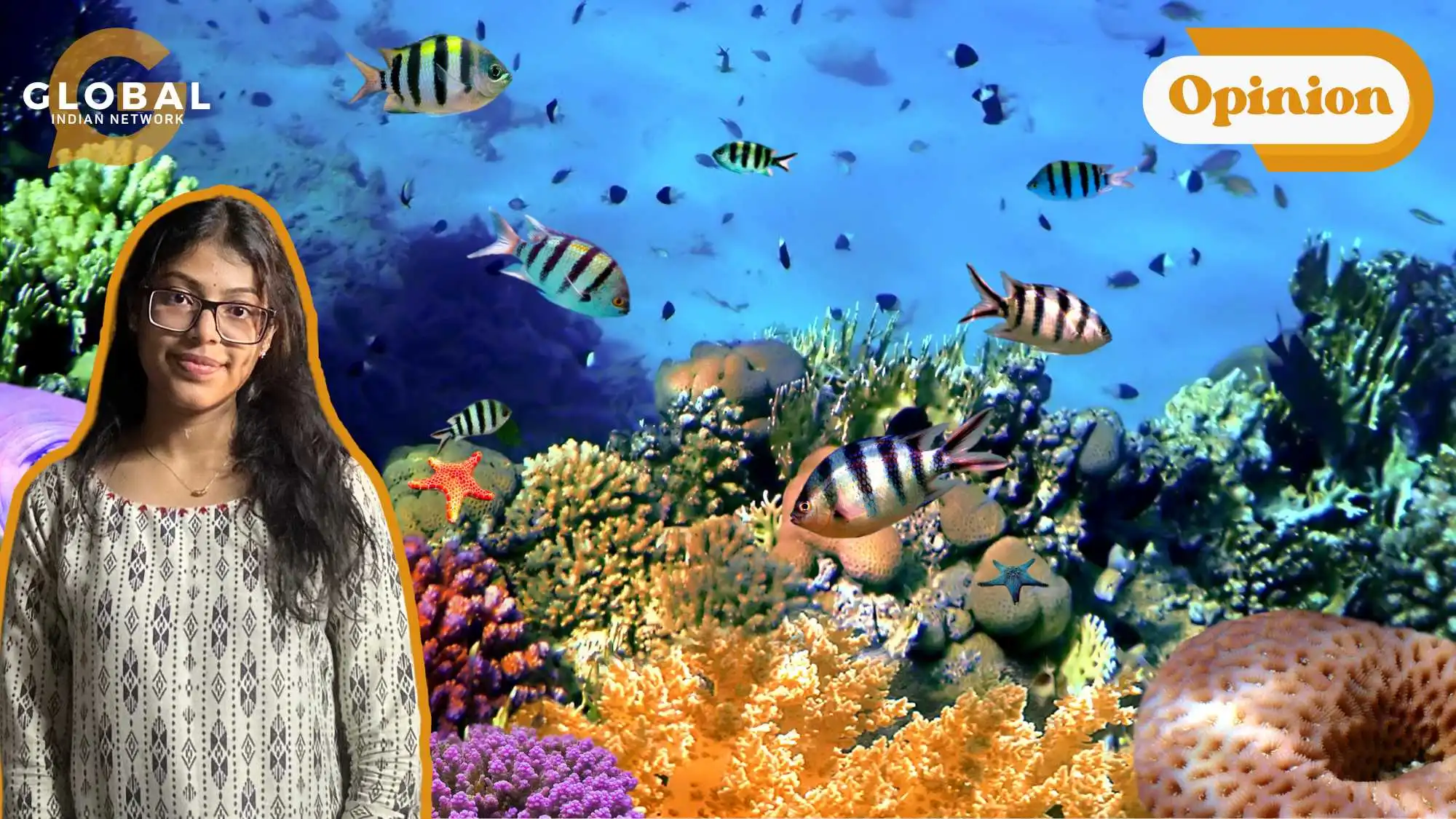Are Coral Reefs in danger? Does it really affect the marine animals, human beings, their livelihood, and the overall ecosystem? How to prevent the depletion of these reefs? What are the strategies suggested by various global institutions?
Coral reefs are the underwater rainforest, extending far beyond the ocean. These complex ecosystems sustain not only numerous marine life forms but also have an indispensable part to play in regulating environmental equilibrium.
Nevertheless, the looming menace of global warming has put this complex fabric of life at great risk.
The initial impression that one gets from looking at coral reefs is that they resemble bright underwater landscapes, but places serve as essential living quarters for a stunning variety of marine species, which offer homes to different organisms such as tiny fish and beautiful turtles. What is surprising is that coral reefs cover less than 0.1% of the ocean floor and yet they support over 25% of all marine species thus making them one of the most biodiverse ecosystems in the world.
However, coral reefs have a wider significance than just the oceanic world. They serve as natural wonders that provide a haven against coastal erosion and harm from storms. Besides, they are also very important in maintaining the life of millions of people globally with particular emphasis in developing countries where reef-based fisheries and tourism are critical sources of income and food.
Despite their enormous ecological and socio-economic importance, climate change has rendered them vulnerable. Particularly dangerous is the warming up of sea temperatures caused by greenhouse gases being collected in the atmosphere.
Corals eject these photosynthesizing algae if ocean waters become too hot – this process is called bleaching. This act not only robs them of their colors but also weakens them thus increasing disease susceptibility and causing death eventually.
Coral bleaching events in the past decades have escalated both in terms of severity and frequency and have caused significant damage to coral reef ecosystems globally. Moreover, research says even the sunscreen that we apply contains an ingredient called oxybenzone which is harmful for the sustenance of these reefs.
The largest coral reef system on Earth and a UNESCO World Heritage site, the Great Barrier Reef has undergone unprecedented bleaching events and two consecutive years of large-scale coral die-offs. Coral reef’s damages affect more than just the sea. When reefs decline, so do the nutrients they give to sea life and people. The reduced number of fish destroys the whole food chain, causing issues for the whole sea world. People living by the sea who need fish and tourists for work have a tough time, making it hard to get food and money.
Eutrophication is also a concern which is the growth of excessive nutrients in the ocean leading to the depletion of oxygen due to an increased growth of microorganisms. Moreover, global warming also affects the ocean, therefore the water temperature increases creating an imbalance in the overall ocean oxygen. Healthy reefs are key to keeping carbon out of the air, which helps fight climate change. But when corals die, they let carbon out, which makes global warming worse.
How to deal with such problems?
We need fast and joined work to deal with the problem. We have to cut down on gases that make global warming worse, to stop the sea from getting too warm and keep coral safe. We also need to take care of the sea in a smart way, like making safe zones for sea life and having rules for fishing and tourism to save them. There are immediate methods to work on the issue, but it has to be done in cooperation.
To prevent the seawater from getting hot, we have to reduce gases that enhance global warming. We should also use the sea wisely for example we can preserve some parts of the sea, but some areas should not be developed for fishing or tourist use in order to save the remaining reefs.
In conclusion, pursuing interventions to build the coral reef ecosystems’ capacity to adapt to and cope with climate change, including coral gardening and reef preservation projects, can lessen the extent of the damaging effects of climate change and improve the reefs’ capacities to withstand stress. An intergovernmental, interdisciplinary, and comprehensive strategy, involving both scientific and political approaches, in cooperation with various conservation organizations, interest groups, and community inhabitants is necessary to prevent the continuing degradation of coral reefs.
Deliberate challenges do increase, thus more and more, the existence of coral reefs is at a crossroads. However, by focusing our efforts and deducing ourselves to increased and persistent efforts we are capable of protecting and preserving these extremely valuable ecosystems for future generations. Now is the time to act because it is actually the method of measuring the health of the coral reefs and as a result the health of the entire globe.
Do you have burning thoughts or opinions? We’d love to hear them! Share your thoughts and ideas in the comments below to get the conversation flowing, or feel free to reach out to us at larra@globalindiannetwork.com.










[…] With such a look, Raja Ampat is like a paradise for snorkelers and even divers because it is home not only to hordes of different species but also to the desirable manta rays and the sneaky sharks, colorful schools of fish, and brilliant coral reefs. […]